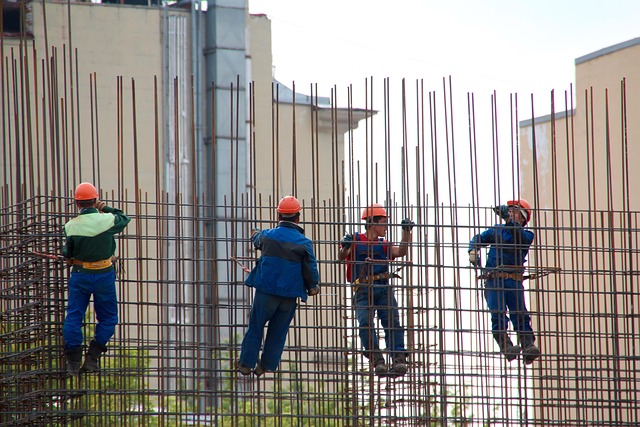Working with a Construction Company in Ireland
The construction industry in Ireland offers diverse career opportunities with competitive salaries and room for advancement. From skilled trades to management positions, working with construction companies provides stability and the satisfaction of creating lasting structures. Understanding what employers expect and the daily responsibilities can help prospective workers succeed in this growing sector.

The construction industry in Ireland has been experiencing significant growth in recent years, creating numerous employment opportunities across various specializations. Working with a construction company in Ireland can be a rewarding career choice that offers stability, competitive compensation, and the satisfaction of contributing to the built environment. Whether you’re considering entry-level positions or specialized roles, understanding the industry landscape, employer expectations, and daily responsibilities can help you make informed career decisions in this dynamic field.
What Employers Expect in the Irish Construction Sector
Construction companies in Ireland typically look for a combination of technical skills, practical experience, and personal attributes when hiring new team members. Formal qualifications such as apprenticeships, certificates, or degrees in construction-related fields are highly valued, particularly for specialized roles. Many employers require the Safe Pass card, which certifies basic health and safety awareness for construction sites.
Beyond technical qualifications, employers place significant emphasis on reliability, punctuality, and a strong work ethic. Construction projects operate on tight schedules, and team members must consistently show up on time and ready to work. Communication skills are also essential, as construction work involves collaboration across different trades and departments. Additionally, employers value problem-solving abilities and adaptability, as construction sites frequently present unexpected challenges that require quick thinking and flexible approaches.
For more specialized positions, employers may expect specific certifications or licenses, such as those for operating heavy machinery or performing electrical work. Many construction companies also look for candidates who demonstrate a commitment to ongoing professional development, as construction techniques and regulations evolve over time.
Everyday Duties in Irish Construction Jobs
Daily responsibilities in construction vary widely depending on your role, but certain elements remain consistent across most positions. For general construction workers, typical duties include site preparation, material handling, tool operation, and cleanup activities. These roles often involve physical labor in various weather conditions, requiring stamina and attention to safety protocols.
Skilled tradespeople such as carpenters, electricians, plumbers, and masons focus on their specialized craft, working from blueprints or specifications to complete their portion of the project. Their days typically involve measuring, cutting, installing, and finishing materials specific to their trade. These roles require precision, technical knowledge, and the ability to coordinate with other trades.
Construction managers and supervisors spend their days overseeing operations, coordinating teams, communicating with clients, managing schedules, and ensuring compliance with regulations and quality standards. Their responsibilities include regular site inspections, progress reporting, and problem resolution. Administrative staff handle documentation, procurement, payroll, and other office functions essential to project management.
Health and safety responsibilities are integrated into everyone’s daily duties, with regular toolbox talks, safety inspections, and proper use of personal protective equipment being standard practice across Irish construction sites.
Why Demand Is Rising in Ireland’s Construction Industry
Several factors are driving the increasing demand for construction workers in Ireland. The country’s population growth and urbanization have created significant housing needs, with the government implementing ambitious housing development programs to address shortages. According to recent data, Ireland needs approximately 35,000 new homes annually to meet demand, creating sustained work opportunities in residential construction.
Infrastructure development represents another growth area, with major projects in transportation, renewable energy, and public facilities receiving substantial investment. The National Development Plan 2021-2030 outlines €165 billion in infrastructure spending, ensuring a pipeline of projects that will require skilled workers for years to come.
The focus on sustainability and energy efficiency is also transforming the industry, with retrofitting existing buildings and constructing new energy-efficient structures becoming priorities. This trend has increased demand for workers with specialized knowledge in sustainable building practices and renewable energy systems.
Technology adoption in construction is accelerating, with Building Information Modeling (BIM), prefabrication, and other advanced techniques becoming more widespread. This evolution creates demand for workers with digital skills alongside traditional construction expertise.
Additionally, an aging workforce means many experienced construction professionals are approaching retirement, creating opportunities for new entrants to fill these positions and advance their careers. This demographic shift has prompted many construction companies to invest in apprenticeship programs and training initiatives to develop the next generation of skilled workers.
The construction industry in Ireland also benefits from the country’s strong economic position within the European Union and its ability to attract international investment for commercial and industrial development projects. Many multinational companies establish or expand their physical presence in Ireland, generating demand for construction services.
As Ireland continues to develop and modernize its built environment, the construction industry remains a vital sector offering diverse career opportunities with competitive compensation and the potential for long-term growth. For those considering a career in construction, understanding employer expectations, daily responsibilities, and the factors driving industry growth can help in making informed decisions about education, training, and job selection in this dynamic field.




